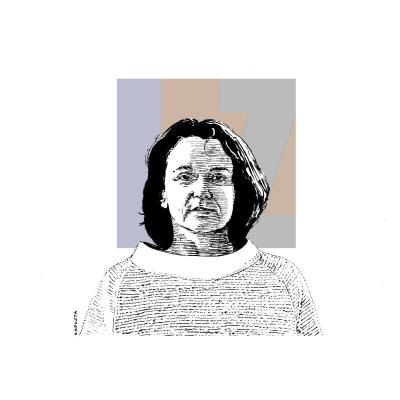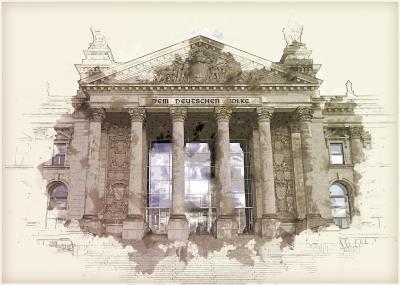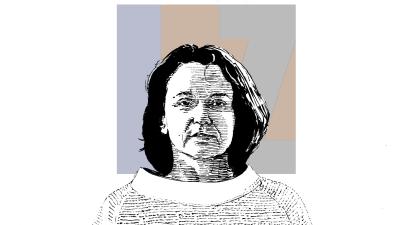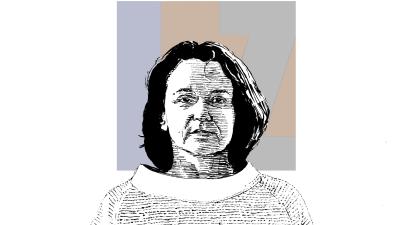Does the European Union Contribute to Moral Progress and If So, Then How?
At first glance, the question asked in the title is surprising. Can an organization which, like any human formation, is not free from corruption and abuse, contribute to moral progress? Some go as far as to doubt whether such progress is possible at all. Certainly, the objectives set by the EU, namely peace and prosperity, can be read as visible signs of moral order. Indeed, one can agree that a life in peace, prosperity, and freedom, as opposed to war, poverty, and violence, is possible only when founded on a moral order.
Until 1989, however, there was much resistance among the elites of Central and Eastern Europe to associate material prosperity with moral order. At the time, prosperity was treated as a result of soulless market mechanisms, which were insensitive to moral issues. The coarse socialist reality was actually seen as ennobling and opposed to Western consumerism. A similar argument was once made by J. J. Rousseau, who gave a negative answer to the question of whether moral progress had arisen with the development of civilization. He criticized civilization for degenerating human nature, his argument guided by the following credo: the poorer, the more moral.
German idealism, particularly G. W. F. Hegel, offered a different interpretation. Hegel believed that peace and prosperity were the result of the construction of society in accordance with the rationality that pervades reality. Human beings are called to discover this inherent rationality, which leads them towards freedom. Property rights play a key role in this process, and a society based on these rights is distinguished by order and development, as opposed to confusion and randomness. Hegel saw the spread of property rights as the chief merit of Prussia. From this perspective, Europe's prosperity was the outcome of moral progress concretized in the development of its civilization, which served as model for the other continents.
Equated with Europe, the European Union became a model of development for the former Eastern Bloc countries. It radiated optimism about the future and promised progress. Unlike in the case of Austria or Denmark, an important motive for EU membership was the need to build institutions from scratch. In this respect, elites and societies distrusted their own strengths and experiences, fully recognizing the superiority of Western experts. In general, Westernness was not only a promise of progress and prosperity, but also a synonym for goodness and morality. EU membership was supposed to ennoble the citizens of Central and Eastern Europe, also in moral terms. There was a belief that the EU-imposed solutions would bring about an institutional transformation towards a more efficient economic system and a better society, which would ensure the development of each and every individual.
The example of Poland shows the ambivalence of that process. Adjusting regulations to EU requirements did not necessarily imply their full implementation. Indeed, the cultural context and acceptance of the ideas behind the laws in question play a key role. This argument is illustrated by the implementation in Poland of property rights and social policy. If, in the case of property rights, the established order still deviates from the “European model” with regard to social policy, thanks to a cognitive turn rather than solely to EU regulations and funds, there has been a structural change that has aligned this sphere with higher European standards.
European Union Membership vs. Property Rights
After 1989, there was a general consensus in terms of ideology and declarations that respect for property rights had to be the cornerstone of a new political and economic system. The right to property was seen as a safeguard of individual freedoms and a cornerstone of a society of prosperity and sustainable development. However, this widespread acceptance of the ideal of respect for property rights did not result in concrete political, social, or legal action. On the contrary, any steps taken to eradicate the state of socialist “property” were met with resistance, neglect, or deliberate delays. The reasons were manifold. It seems that, apart from the obvious resistance of social groups whose existing property rights would have been restricted, the greatest influence was exerted by the Anglo-Saxon concept of property rights, which dominated the transition period. Differing from the German tradition of thinking about property, this concept of property rights marginalizes the importance of legalizing property rights. Any form of use or enjoyment of resources, whether codified or based on tradition or custom, is regarded as property. In this interpretation, legal titles are only one form of the operation of property rights, characteristic of Western societies. It has even been argued in the literature that the superiority of the concept of property rights lies precisely in abstracting from the question of the legal form, thus capturing the multiplicity of forms in which this right functions. In line with this dominant ideological assumption, the legalization of legal property titles after 1989 was seen as secondary as it was assumed that legal codification would proceed gradually, in response to the needs of economic actors who would enforce these processes through market mechanisms. It was argued that at the level of development of the economies of the transition countries, codification of property rights was unnecessary.[1]
Such arguments underpinned the indeterminate legal status in Poland of thousands of hectares of land, real estate, or factories. The legal status of the land acquired by Poland from Germany after World War II, accounting for a third of Poland's present territory, can serve as symbol of the lack of understanding of the function of property ownership. When after 1989 residents bought off the real estate and flats they had been occupying, they were not given legal titles. Moreover, the former German owners continued to appear in the general register, as it was not deemed necessary to update them after 1945. If that state of affairs under socialism can be seen as consistent, because property as a right did not exist under socialism, the post-1989 lack of regulation contradicted the declared support for property rights. It was the claims of the former German owners that 20 years after the start of the transition, in 2008, resulted in the adoption of a law necessitating an update of land registers and the establishment of titles for the current owners. Tenement houses and the land owned by former State Agricultural Farms (państwowe gospodarstwo rolne, PGR) did not have titles and this still has not been completely amended. That resistance to legalization is surprising given that it was strongly supported by the Catholic Church. The Polish Bishops' Conference published letters calling for reprivatization or enfranchisement of agricultural workers as being in line with the moral order inherent in natural law. In a letter of 17 March 1995, the Polish bishops argued that without reprivatization, Poland would not be counted among the countries respecting property rights.[2] That guarantee was necessary for foreign investments and Poland had to ensure her citizens' enfranchisement before joining the European Union.[3] The bishops appealed that the contemporary people and the next generations needed to know that other people's property had to be respected and that any violation of that right had to be condemned.[4]
Regrettably, such calls remained unanswered. Poland, as the only country of the former Eastern Bloc, has not conducted reprivatization. Former owners of estates or properties have to pursue their claims in lengthy legal proceedings. The enfranchisement of cooperative housing began in 2007.
Importantly, however, the lack of understanding of the systemic role of property titles has not only affected the transition states. West Germany's creation of a dysfunctional property order in East Germany exemplifies how common that process was at the time. Still, the problem of legal “indeterminacy,” commonplace in Poland, did not exist in Germany, where the West German Civil Code clearly distinguished between ownership and mere usufruct. The problem was that no importance was attached to the enfranchisement of East German citizens. Despite a strong tradition of thinking about the relationship between property and freedom, no attempt was made to distribute property among citizens of the former GDR. In consequence, these areas rank among the areas with the lowest levels of ownership among the population worldwide, which, according to experts, has perpetuated the economic disparity between West and East Germany, despite money transfers worth billions of euros.[5]
Importantly, it is the German philosophical thought that convincingly highlighted the causal links between ownership and freedom. However, it was clear to I. Kant and Hegel that ownership was a new institution, established by law. Possession, which occurred in early societies, was quite different. Arguing with J. Locke's theory assuming that ownership was born through physical use, Kant argued that the state of common possession by an individual could never be thought of as original.[6] Such a state of things would have to be acquired by an external juridical act, although there may be an original and common possession of an external object.[7]
He would add that physical cultivation of land cannot change its legal nature, as this change requires a declaration of will of the interested parties. Ownership appears with law; it is an abstract title. Without a legal title, it is a form of possession. For Hegel, a title to property fundamentally changed the quality of society. Its emergence was the moment when, in his opinion, the abstract ideal of freedom became concrete in human history. According to him, that was the next step, after Christianity, on the human spirit's journey towards freedom. He argued that it had probably been about one and a half thousand years since the freedom of the person began to flourish through Christianity and became a general principle among a small part of the human race.[8] The freedom of property, however, had only recently been recognized here and there as a principle.[9] That was but one example from the world's history of how long it took the spirit to progress in its self-consciousness, against the impatience of opinion at that.[10]
Undoubtedly, the introduction of the rule of law, which also implied the legalization of property, was not only an intellectual, but also a moral achievement of European nations. It meant, in fact, the abandonment of the power of specific individuals, in favor of regulation through an abstract, legal title that could be gained or lost through economic action. That principle required abstraction from person, office, or origin. It revolutionized the mobility of societies and laid the groundwork for the emancipation of economics, generating prosperity on an unprecedented scale.
The economic aspect of property rights is highlighted in G. Heinsohn and O. Steiger's Ownership Economics.[11] It consists in securing contracts to finance production or services. Property has become a vehicle for development not because of the exclusivity of physical use, which would stimulate the homo oeconomicus to take effort for profit. This function can be fulfilled by various forms of use without the need for legal titles, which is the subject of study in institutional economics, which refers to the concept of property rights. Legal title, however, introduces a new quality, which Hegel was aware of and which G. Heinsohn and O. Steiger indicated. Property titles are accompanied by financial instruments. Every owner with legal title has the capacity to borrow money and launch investment processes. Ownership title makes every owner free to take investment risks and secure their livelihood independently. Without legal title, property cannot play the collateral functions of capitalism's core technnology of capital creation.
As Heinsohn and Steiger point out, it is no coincidence that the spread of property rights in Europe and its overseas possessions led to an unparalleled economic and technological explosion in this part of the world. Legal and abstract titles have been used to generate capital and fund innovative ideas and technologies that have underpinned unprecedented economic progress. One might argue that the moral effort to establish the primacy of a legal, abstract, and intangible property right and to submit to its authority, which implies the recognition of equality before the law, has translated in the material world into the construction of a civilization of prosperity for a historically unprecedented number of people.
Unfortunately, the region of Central and Eastern Europe, including East Germany, has only partly been involved in these post-1989 processes. In East Germany, this is due to the failure to financially empower citizens through enfranchisement. Financial transfers only reinforce dependency. In the rest of the region, legal regulations do not allow for the full circulation of property titles as financial instruments. One consequence is the weakness and shallowness of capital markets. Due to the dysfunctional property law arrangements, it cannot form the basis for a more powerful capital and financial market. Consistently, the Central and Eastern European region is still treated as a different category from Western Europe in IMF statistics. Unfortunately, due to the prevailing ideology, this situation does not raise concerns in the region, which succumbs to the widely shared myth that the “emerging countries” cannot have their own financial instruments and developed capital markets because they lack savings. This is the prevailing narrative, even though the 2008 financial crisis or the 2020 pandemic crisis highlighted the mechanisms of capital generation. The barrier was the ability to offer collateral rather than savings. The exclusion of these societies from the core capitalist technology of collateral-based capital generation, cements their secondary position vis-à-vis the Western world and, at the same time, reinforces their sense of incapacity and dependence on others. From a moral point of view, this is disadvantageous.
Accession to the European Union has changed little in this aspect. In the EU prevails an understanding of property ownership in the property rights tradition. The indeterminate legal state is treated as a diversity depending on the cultural context and traditions of the member state. Of course, in the process of codification of secondary acts and the unification of the common market, such as insolvency law, changes are made which require precise legislation of property rights. Nevertheless, it is a fact that property rights in the European debate are mainly discussed in the context of the Social Union and the fight against homelessness. In Poland, too, the subject of property comes up in connection with the policy of securing housing for families and the young generation. It is symbolic that in the Capital Union project, the more than 100,000,000 EU citizens living in post-socialist areas of Europe are seen primarily as consumers of the capital generated in Western countries. There is no mention of a need to include these territories in the processes of generating their own credit and capital instruments, which would considerably strengthen the EU capital market and remove the ever-present financial divide between emerging and developed Europe.
The example of property regulations shows that the EU's influence on institutional change is limited. Without an understanding of the idea behind property rights, the effects are different. EU membership has not had a beneficial impact on the construction of a legal order that would allow for the free management of property, which in many philosophical traditions or the social doctrine of the Church is the foundation of the desired social order compatible with the moral order. The Polish case is symptomatic. Despite centuries of belonging to Western culture and the influence of the Catholic Church, the period of socialism has exerted a stigma which hinders the acceptance of the functioning of property rights in the way in which they function in the West. Rather, the current state is reminiscent of the traditions of 19th-century Russia, where property rights were conditioned so significantly by servitude to the commune that they could hardly be called property from the perspective of Western European legal culture.
Social Policy
Undoubtedly, the European Union has had a positive impact on changing the attitudes to social policy. At the beginning of the transformation, the debate in the Western world in the early 1980s around the need to reduce social policy in order to maintain market competitiveness was reduced in post-socialist terms to the assumption that social policy was generally a constraint on development and could only be practiced once a higher economic stage had been reached. In the West, the idea was to reduce the extent of social policy; in Poland, this was interpreted as its complete rejection. Expectations of the state's active role in that area were described as manifestations of a homo sovieticus attitude and rejected. It was assumed that the more stringently and relentlessly market regulations were introduced in all areas, the better the economic development. Ideas of privatizing education, pension security, or health care in line with the principle that if everyone takes care of themselves, everyone will be secured, became popular. That approach was contingent on the reformers' deep distrust of citizens, especially those who expected assistance; those expectations were seen as proof of civic immaturity. The low appreciation of the value of human capital is significant. In general, economic policy was geared towards attracting investment capital by maximally underestimating the cost of human capital. To that end, all forms of protection of workers' rights were rigorously curtailed by promoting “junk contracts,” which offered no health care or pension security. The effect of that policy, which affected the entire Central and Eastern European region, was an exodus of economically active groups to the West. It is calculated that over six million people have permanently moved from the region to other EU member states.
It is important to recognize, however, that the Polish society was not mentally ready to bear the costs of the Community solutions for the protection of labor rights. There was a widespread conviction that social policy was possible only as the final stage of economic development afforded by rich Western countries. That conviction, somewhat implied by the neo-liberal narrative, was part of a still lingering caricatured image of capitalism, assuming that wealth comes from the exploitation of labor. It was completely abstracted from the facts that in Europe, the processes of capitalist transformation of labor markets in the 19th century had always been accompanied by the development of solidarity institutions in support of the poor and excluded. Initially initiated by ecclesiastical circles, that movement became state policy. As Heinsohn and Steiger argue, social policy is indispensable for society's acceptance of the hard and ruthless mechanisms of property law against human misery. In property economics, social policy is an integral part of the system. In this context I should quote a statement made by a co-creator of the Polish post1989 transformation, J. Sachs, who saw the sources of the success of the Polish transformation, in contrast to the Russian one, despite the reforms' similarity, in three factors: the Solidarity movement, the Church, and the bourgeois traditions. All three of those factors, which were absent from Russia, protected human capital against the radicalism of liberal market solutions.
In his The End of Economic Man. A Study of the New Totalitarianism, Peter Drucker indicated how strongly European capitalism was tied to the Christian culture code. The Church responded to social change not only by organizing aid for the excluded or by supporting workers' movements in the struggle for rights, but also stimulated active participation in the processes of capital creation. It was parish priests who taught in Britain or Germany how to use cooperatives, savings banks, mortgage lists, or farmers' associations to strengthen the investment potential of their parishioners. This is also true of Poland, where parish priests were the founding fathers of the cooperative movement, farmers' associations, and savings banks.
It was only after Poland joined the European Union in May 2004 and became confronted with ideas such as the Social Union that the Polish society's attitude to social policy gradually changed. That was partly linked to the need to use targeted funds for areas of poverty and exclusion. Comparative EU statistics exposed structural neglect, growing inequalities within the state, and a degree of exclusion of individuals, especially children, and regions. In the initial period, attempts were made to downplay the problem, treating it as a normal phenomenon in an emerging country. A qualitative change in attitudes towards social policy did not occur until after 2015 and was reflected in the election program of the Law and Justice party (Prawo i Sprawiedliwość, PiS). It was a sea change compared to the program of the first Law and Justice government during 2005‒2007, when the party still espoused neo-liberal policies geared mainly towards the needs of the market, without any real sensitivity to social exclusion. The change proposed by the Law and Justice party aligned the labor market in Poland with the continental economic model based on social solidarity. Human capital became a priority. There was also an ideological shift in attitudes towards the individual and his or her place in the economic process. Referred to as the Dignity Revolution, the shift involved support for families with children as well as strengthening the protection of workers' rights, including a reduction in civil law contracts. A sweeping change in social policy became a reality, not through EU funds, but by changing attitudes towards the individual, by recognizing each person's dignity, and by fairness.
Summary
Has membership in the EU made the Polish society morally better? It seems that to some extent this question can be answered in the affirmative. As an organization, the Union has undoubtedly afforded opportunities to have a positive impact on the formation of the institutional order. The membership made it possible to overcome the state of postsocialist atomization, forcing the creation of institutions, networks, and the involvement of civil society. Growing prosperity would not be possible without respect for the public realm, labor law, and solidarity institutions, which requires the transposition of moral ideals into concrete processes and institutions. Areas with corrupt structures, without respect for the rule of abstract law, do not succeed economically and their development is stalled.
At the same time, the Polish experience shows that even the best solutions, if introduced without acceptance of ideological assumptions and the underlying ethos, are unlikely to develop their expected impact. A case in point is the functioning of property rights. This claim is confirmed by the welcome change in social policy, too. A sustainable and structural social turn was feasible only after the cognitive shift in the understanding of the individual and responsibility for the public good within the Dignity Revolution conducted by the Law and Justice party.
From Hegel's perspective, the European Union, like the member states, is constantly on a journey of discerning the logical causes, the meaning, and the purpose of the surrounding world and its challenges. The more its institutions are compatible with the rationality of the moral order inherent in the world, the better future it will be able to provide for its citizens. Surely, this goal can be achieved if the EU remains an open space for the exchange and competition of ideas, conscious of its roots which have made it a model for other civilizations. This was the path for Europe as envisaged by John Paul II. A quote from his homily in Santiago de Compostela may serve as a summary of this essay:
Relive those authentic values that made your history glorious and beneficial your presence in other continents. Rebuild your spiritual unity, in a climate of full respect for the. other religions and to genuine freedoms. Give to Caesar what is Caesar's and to God what is God's. Do not be proud of your conquests until you forget their possible negative consequences. Do not be depressed by the quantitative loss of your greatness in the world or by the social and cultural crises that affect you now. You can still be a beacon of civilization and a stimulus of progress for the world. The other continents look at you and also expect from you the same response that James gave to Christ: I can.[12]
[1] A. Rapaczyński, “The Roles of the State and the Market in Establishing Property Rights,” Journal of Economic Perspectives, vol. 10, no. 2 (spring 1996): 87‒103.
[2] Polish Bishops' Conference, Pastoral Letter on the role of Catholics in the transformation process of Polish agriculture and social changes in rural areas and towns, 17 March 1995 3 Ibid.
[3] Ibid.
[4] Ibid.
[5] H.-W. Sinn, Lecture entitled “Drei Jahrzehnte später – Ein ökonomischer Rückblick auf die deutsche Vereinigung,” Dresden TU, 30 June 2023, https://www.youtube.com/watch?v=94K5vtUM 6bQ.
[6] I. Kant, Rechtslehre. Schriften zur Rechtsphilosophie (Berlin: Akademieverlag, 1988), § 10, p. 77.
[7] Ibid.
[8] D. G. W. F. Hegel, Grundlinien der Philosophie des Rechts (Leipzig: Verlag von Felix Meiner, 1911), § 62.
[9] Ibid.
[10] Ibid.
[11] G. Heinsohn, O. Steiger, Eigentumsökonomik (Marburg: Metropolis, 2006).
[12] John Paul II, Speech in Compostela in 1982, last modified 22 March 2022, https://www.religiousarticles.net/_blog/addressof-pope-john-paul-ii-in-santiago-de-compostela-in-1982.html.
Text originally published in the publication Does the European Union Contribute to Moral Progress?, Ośrodek Myśli Politycznej, Kraków 2023.
Read also
The Spirit of Europe Blows Where It Will
For over 50 years, since mid-1970s, the spirit of neoliberalism hovered over Europe.[1] Its essence was fittingly summed up by Margaret Thatcher, who observed that she knows no such thing as a society but only knows individuals.












Comments (0)